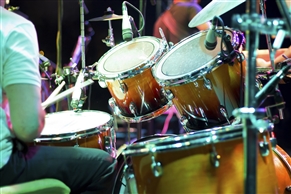Can my child be more clever? David Didau's new book Making Kids Cleverer has some answers.
Unless you're the parent of a child genius, chances are you'd love to help your child become more clever. But where do you start and is it even really possible?
Former teacher David Didau believes it is - and he's outlined what he thinks are key factors in his new book, Making Kids Cleverer: A Manifesto For Closing The Advantage Gap.
This isn't just about piling more pressure on kids to be academically excellent and instead David Didau, using science, research and his own years of experience in education, reveals the strategies and environmental factors that seem to play a significant role in making children more clever - to help them 'live happier, healthier and more secure lives'.
He believes intelligence is partly 'fluid' and partly 'crystallised'.
Fluid intelligence relates to our ability to reason and solve problems, while crystallised intelligence is basically what we know (the knowledge we hold in our memories) and the ability to apply this to new problems.
"Intelligence is influenced by our genes," he says. "Some children are just born with a greater potential for cleverness than others. However, there's good reason to believe that we are already getting cleverer in some respects as we become more knowledgeable, and by concentrating on environmental factors that can be changed, we might be able to make all children cleverer."
While fluid intelligence increases during childhood development, peaks in our mid-20s and then gently declines, David says crystallised intelligence can accumulate.
Wondering what his top tips are? Here are seven things to consider...
1. Don't overestimate what you can do
"One of the most troubling findings of research into raising intelligence is that parents have far less impact than is commonly supposed," says David Didau.
He says a pair of identical twins reared in the same home aren't much more alike than twins reared in separate homes, and explains: "What tends to make us like our parents isn't their parenting but their genes. The effects of parenting on IQ seem particularly conclusive. There's nothing anyone can do about their genes, so our power to shape children's environments is all we have. And perhaps all we need."
2. Read to them
While reading to children won't necessarily pass on the habit of reading, or even have a permanent effect on their intelligence, their memory of what you read to them is likely to persist. So read them stories that take them out of their familiar environment.
3. Broaden their minds through experiences
Take every opportunity to enrich children's experiences, and try to take them to museums and galleries. "Even though our influence on our offspring will wane, their memory of life experiences will, at least in part, be retained," he says. "You can't influence your children's personalities by the time they're adults, but you can give them advantages during childhood that make a difference to how well they understand the world."
4. Talk to them
Tell children about different times and places, discuss current affairs, and explain how the world works. "All of this lodges somewhere in their memories and it all helps them make sense of the unfamiliar, abstract concepts they encounter in school," says David.
5. Never underestimate peer power
Unlike the effects of parenting, peer influences seem to have a much more long-lasting impact on children's attitudes and values, he says. "Whatever their group values, is what they'll value. It's very hard for anyone, especially a teenager, to set themselves apart from the aspirations and antipathies of their peers."
And this can affect intelligence - as if a child's friends don't appreciate the benefits of hard work and persistence, the child won't either. "If a child's peer group values hard work and good behaviour, individuals within the group will learn more," he added. "If the group thinks school is for geeks and trying hard is for losers, individuals within the group will learn less. What starts as a different attitude to school work might well end up as a difference in average IQ."
6. Choose a school for its pupils
One of the most important variables for determining children's educational success is the peer culture at their school, explains David. Therefore, he suggests parents don't select schools based on academic success, as he says research shows this has very little effect on achievement and instead advises parents to choose a school where children will be happy and where the majority of pupils have a positive attitude towards education.
"This is far easier said than done, but it's the thing most likely to have a long-lasting positive effect on your children," he says. "Do what you can to send them to a school where it's cool to be cleverer and work hard."
7. Don't believe the hype
There are many supposed ways to increase intelligence, but the author insists many of them don't make any difference. He says playing brain-training games makes you better at brain-training games, nothing else, and although listening to Mozart may help you appreciate classical music, it won't make you cleverer. Plus, he suggests that although playing chess might be challenging and worthwhile, "don't bother if you think it will help raise your intelligence".
David adds: "There's a whole industry that exists to sell stuff that we're told will make us cleverer. But if it sounds too good to be true, it probably is."
*Making Kids Cleverer: A Manifesto For Closing The Advantage Gap by David Didau is published by Crown House Publishing, priced £14.99. Available now.





